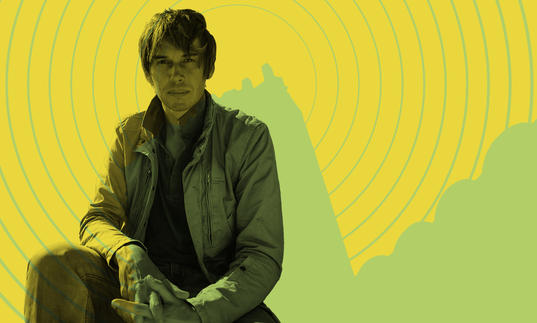The audio-visual experience sees Stasevska conduct the orchestra in works by composers who have also pondered this great matter, as Cox shares spectacular imagery and recent cosmological discoveries.
Ahead of the show – which you can stream live – the eminent physicist takes us through the music selections, and introduces what he thinks, following decades of study.
‘Our small world orbits around one star amongst 400 billion inside one galaxy among 2,000 billion in the small patch of the universe we can see. Light takes over 100,000 years to cross our galaxy, and 2 billion years to make its way from our nearest galactic neighbour, Andromeda. We are a fragile spec in a limitless ocean of stars.
‘The questions raised by our observations of the Universe are profound; to put it bluntly, when confronted by the size and scale of the Universe, what’s the point?
‘The Symphonic Universe is part of my personal search for answers. I don’t claim to have THE answer of course. As one of my heroes Carl Sagan wrote, astronomy is a humbling and character-building experience; anyone who claims to have THE answer is not humble and is also wrong. Having said that, the search for answers is in itself an important part of what it means to be human. Astronomy doesn’t render the quest for meaning futile; it amplifies the challenge.’
Jean Sibelius: Symphony No 5, mv III
‘The evening begins with the third movement of Sibelius’s 5th Symphony; a love letter to nature, depicting the majesty of swans in flight. For me, it is also a love letter to humanity; we are, after all, a part of nature – in fact we are the most complex part of nature we know of anywhere in the universe. A human being is a collection of atoms that contemplates atoms; matter, processed in generations of stars and clumped together by gravity, capable of writing symphonies.’
Charles Ives: The Unanswered Question
‘In The Unanswered Question, Charles Ives poses and explores the deepest possible question. Why does anything exist?
‘The answer to that question is of course “we don’t know”, but I am at least tempted to add a “yet”. From a scientific perspective, ‘Why’ questions are usually dismissed as unanswerable, but it is worth exploring what an answer might look like. For example, our best explanation for the pattern of the galaxies scattered across the sky like snowflakes is that their origin can be traced back to a time before the Big Bang when the universe was cold and dark and expanding at an unimaginably fast rate. The end of this period, known as Inflation, is the beginning of The Big Bang. We do not know how Inflation began, or even if it had a beginning in time. Perhaps our universe is eternal. If our universe didn’t have an origin in time, does that answer the ‘why’ question?’
Gustav Mahler: Symphony No 10, mv I
‘The most eloquent expression I know of the realisations that our lives are small, delicate and finite and yet indescribably valuable, perhaps even in a universal context, are the symphonies of Mahler. The orchestra can say things in music that I cannot in words, and so I leave the last word to them, and this work.’


